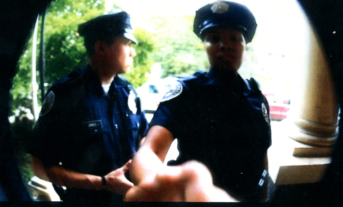Reasonable suspicion is not the same as probable cause. The basis for stopping a citizen must be based upon “specific and articulable facts” – in other words if the police officer believes a crime is about to be or has been committed. Reasonable suspicion is the legal standard by which a police officer has the right to briefly detain a suspect for investigatory purposes and frisk the outside of their clothing for weapons. While many factors contribute to a police officer’s level of authority in a given situation, the reasonable suspicion standard requires facts or circumstances that would lead a reasonable person to believe that a suspect has, is, or will commit a crime.
While reasonable suspicion does not require hard evidence, it does require more than a hunch. A combination of particular facts, even if each is individually insignificant, can form the basis of reasonable suspicion. For example, police may have reasonable suspicion to detain someone who fits a description of a criminal suspect, a suspect who drops a suspicious object after seeing police, or a suspect in a high crime area who runs after seeing police.






















